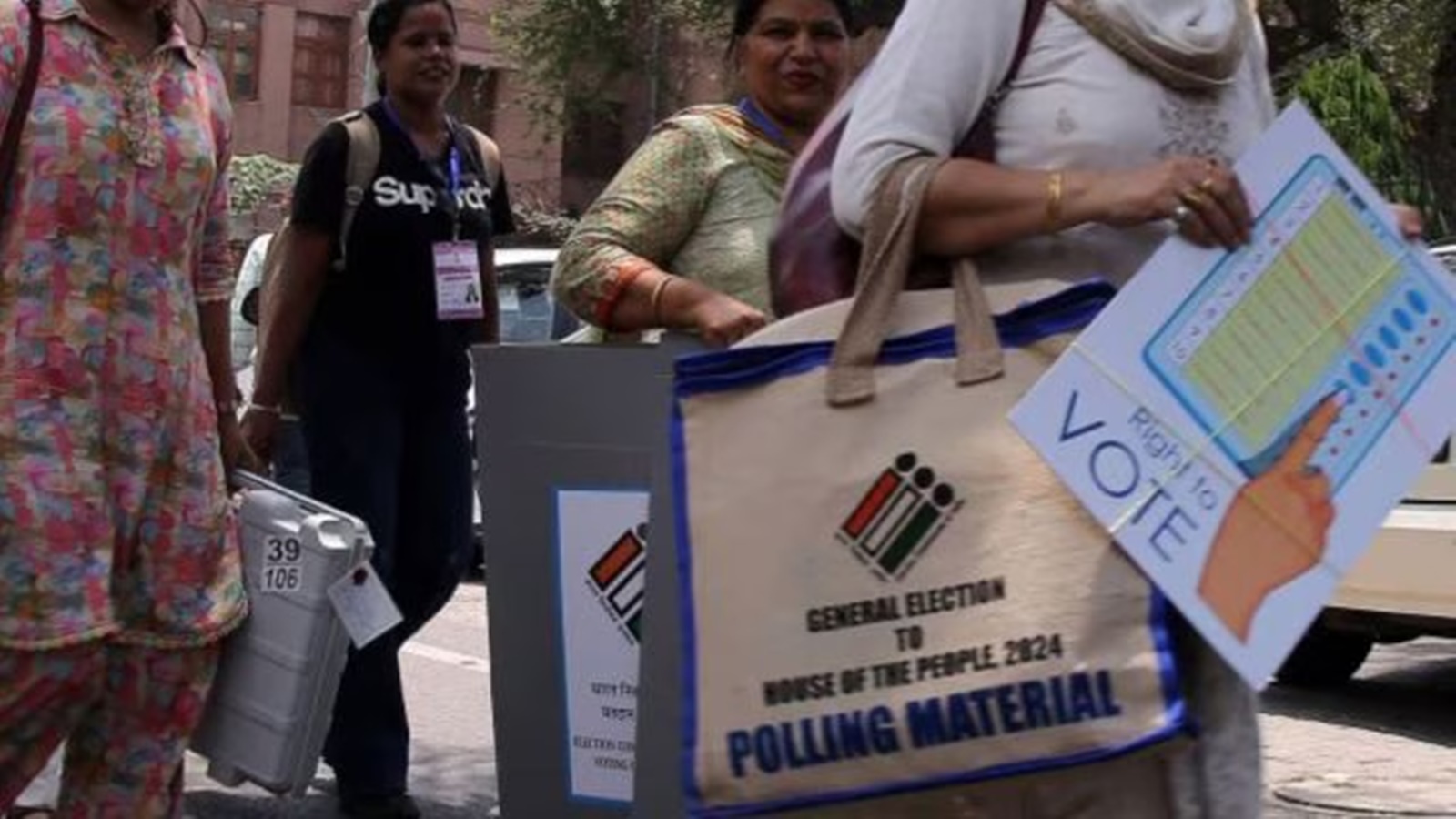 |
|
The upcoming Maharashtra Assembly elections present a complex tapestry of political maneuvering, caste dynamics, and economic anxieties. The article highlights the widespread confusion among voters, using the term 'gopalkala' – a culinary metaphor for a medley of flavors – to describe the chaotic mix of parties and alliances. This reflects the significant impact of shifting allegiances and the fluidity of political affiliations on the electorate. Candidates who have switched parties, often as a result of internal negotiations within coalitions, are struggling to connect with voters who prioritize established party lines and community affiliations over individual candidates. This trend is evident across various constituencies, showcasing a consistent pattern rather than isolated incidents.
The role of caste in determining voting patterns remains a crucial aspect. The examples provided, such as the competition between Sanjay Rathod and Manikrao Thakare in Digras, highlight how caste identity often supersedes party affiliation. The campaign of Independent candidate Ramesh Punekar in Nagpur Central, who enjoys the support of the Halba Koshti community, further emphasizes this point. The BJP’s attempts to consolidate support from various castes and communities – OBCs, SBCs, SCs, and STs – appear to be faltering, particularly in the face of local resentment, such as the backlash against the replacement of a sitting SBC MLA with an OBC candidate in Nagpur Central. This highlights the limitations of broad-based strategies and the importance of addressing specific local concerns and grievances.
Economic issues, particularly those affecting farmers and the rural population, are also significant factors shaping voter sentiment. Inflation, unemployment, and the plight of farmers are recurring themes, echoing concerns raised during the recent Lok Sabha elections. The article portrays the disillusionment of voters with the frequent shifting of allegiances and the lack of focus on substantive issues. The concern over 'tod-phod' (splitting of parties) reflects a sense of betrayal and a lack of trust in the political establishment. This disenchantment is evident in villages like Fetri, where despite past development initiatives, voters express dissatisfaction with the current political climate and uncertainty regarding future prospects. The narrative of voters expressing their concern over the lack of jobs and the need to relocate for employment highlights the growing economic anxieties that transcend party lines.
The Congress party’s strategy of targeting the Dalit, Muslim, and Kunbi (DMK) communities appears to be an attempt to counter the BJP's outreach efforts. This highlights the ongoing significance of community-based mobilization and the potential for success of targeted strategies. The Kunbi community, a significant voting bloc, appears to be exercising political maturity, with their leader's role in the Congress party’s recent Lok Sabha success reflecting their influential presence. The BJP's own strategy of appointing Chandrashekhar Bawankule as state party chief, in an effort to regain support from the Teli community, emphasizes the strategic importance of addressing specific communities and their grievances. However, the consistent and widespread expression of concerns regarding economic hardships such as inflation, unemployment and the plight of farmers suggests that these broader issues continue to overshadow the focus on caste-based or party-specific strategies.
In conclusion, the Maharashtra Assembly elections represent a complex interplay of various factors, including the influence of caste, party alliances, and economic anxieties. The prevailing sense of political disillusionment and voter confusion, characterized by the term 'gopalkala,' reflects a deeper underlying frustration with the current political landscape. While caste remains a powerful determinant of voting patterns, economic issues are also significant drivers of voter sentiment. Ultimately, the outcome of the elections will depend on the ability of political parties to address these complex and interwoven challenges effectively.
Source: Maharashtra Assembly polls: Voters grapple with ‘gopalkala’ of forces, faces and parties in the fray
